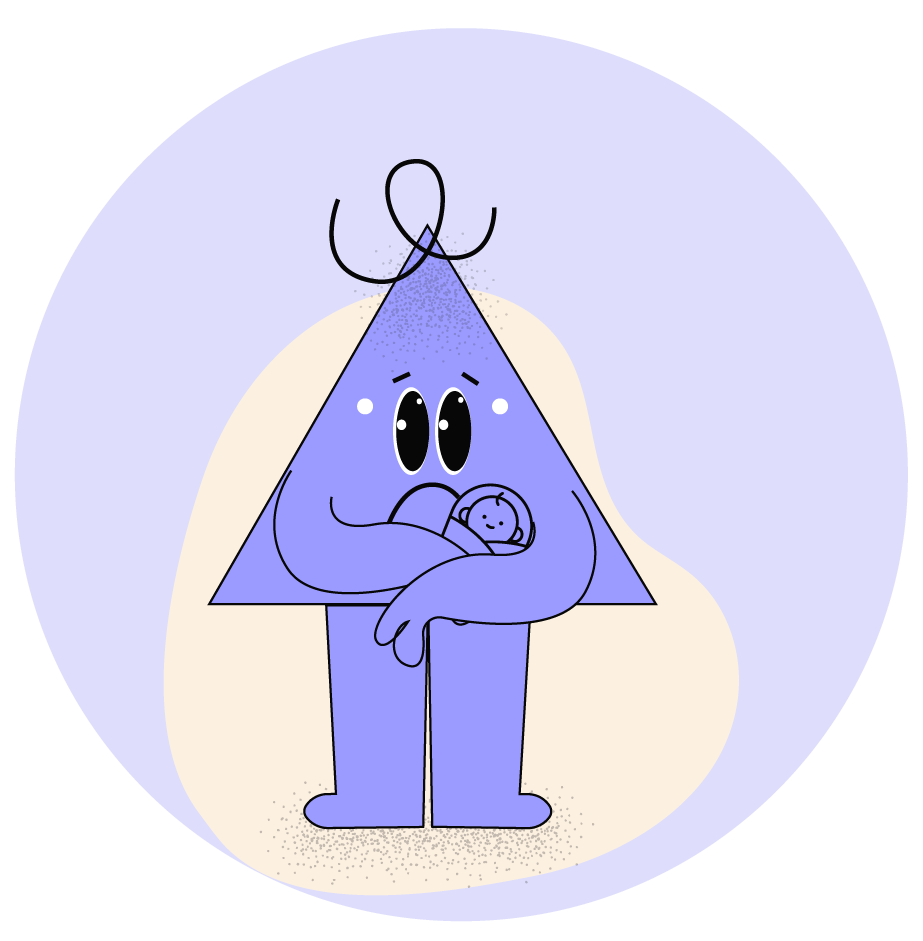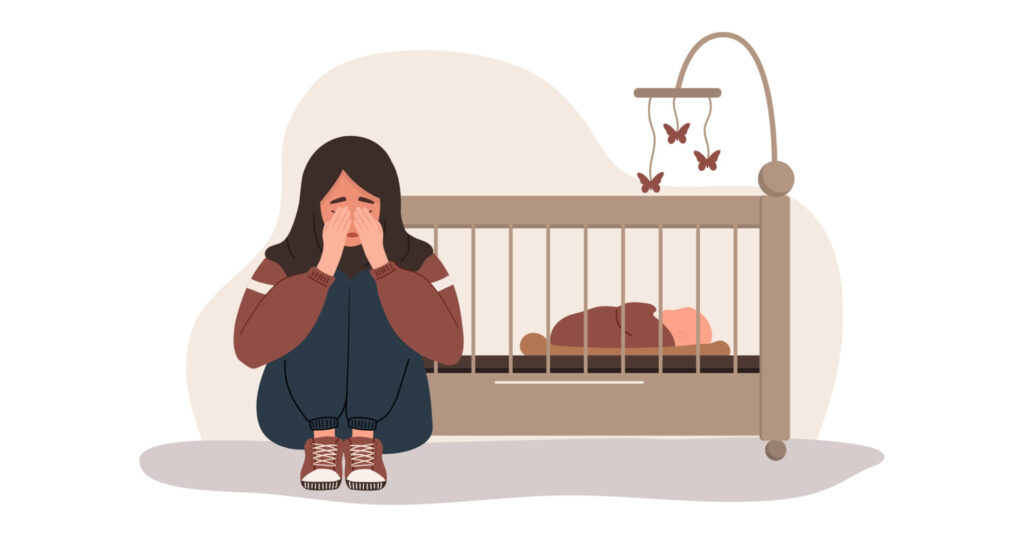What is Postpartum Depression?
The period of pregnancy and the period after birth of the child makes a woman vulnerable. Mothers experience extreme biological, emotional, social and chemical changes. This complex mix of physical, emotional and behavioural changes in some women after giving birth is known as postpartum depression (PDD). Postpartum depression is also addressed as post pregnancy depression.
According to DSM-5, postpartum depression is a form of major depression which begins within 4 weeks of the delivery. It affects 50 to 75% of mothers and further has a long lasting effect on 15% of mothers post pregnancy.
Symptoms of Postpartum Depression
Women with postpartum depression suffer from combinations of the below symptoms:
- Prolonged periods of sadness
- Excessive crying
- Lack of pleasure or interest in things enjoyed earlier
- No or diminishing interest in the baby
- Self harming thoughts
- Thoughts of harming the baby
- Fatigue
- Irritability and crankiness
- Insomnia or hypersomnia
- Unnecessary guilt
- Trouble concentrating
- Reduced decision making
The intensity of each symptom varies from mother to mother. These symptoms often lead the mother to feel guilty, ashamed and worthless.
The prominent changes are often ignored by new mothers which can be harmful to the mother and the child. Mothers must seek immediate professional help in cases she-
- Feels anxious, fearful, panic often
- Experiences symptoms for more than 2 weeks
- Is unable to function normally
- Is unable to cope with daily tasks
What Causes Postpartum depression?
The chemical changes in the woman’s body are rapid, production levels of estrogen and progesterone are increased by times during pregnancy and they drop down to normal levels within 3 days post pregnancy. This sudden change in hormone levels along with the psychological and social changes, makes women highly prone to depression after pregnancy.
Levels of thyroid hormones also drop rapidly post pregnancy which may cause symptoms of depression. In that case, a doctor can prescribe thyroid medication to balance it.
Many mothers have reported to feel-
- Unattractive
- Doubtful of their capability to be a mother
- Tired from lack of sleep
- Exhausted after labour and delivery
- Discomfort due to lifestyle change
- Rapidly changed self identity and body image
These thoughts and feelings may push one over the edge towards depression.
Having a history of depression, premenstrual dysphoric disorder (PMDD) or a family history of mood disorders increases a woman’s chances of suffering from postpartum depression.

New mothers deserve support through postpartum hormonal changes and responsibilities
Seek professional help and guidance
Types of Postpartum Depression
Postpartum depression being a postpartum mood disorder, has a few types in it which may vary in intensity and duration.
Postpartum Blues
Also known as baby blues is the most common form of mood fluctuation new mothers go through. It is the mildest form of postpartum depression. It lasts only for a few days and is expected to subside in about two weeks after delivering the baby.
Postpartum blues do not hamper the woman’s functionality and do not leave a lasting impact on her mental health. Which clearly differentiate it from postpartum depression.
About 85% of new mothers experience postpartum blues. And since it is so common it is considered normal.
Postpartum Psychosis
Being one one of the chronic postpartum mood disorders, postpartum psychosis is experienced by every 2 out of 1000 women. It includes symptoms like hallucinations, delusions, agitation, hyperactivity and poor judgement.
Postpartum psychosis occurs in the initial few weeks after birth of the child and can be similar to the manic phase of bipolar disorder.
Women with a history of bipolar disorder or psychotic disorder are prone to postpartum psychosis. It hampers their functioning while they are unaware of their own actions. Therefore there is a higher risk of suicide and infanticide during postpartum psychosis.
Postpartum Post-Traumatic Stress Disorder (PTSD)
Experienced by 9% of new mothers, postpartum PTSD is a unique mood disorder. It is the result of perceived or real threats to the mother’s life during or post childbirth. The threats include unplanned C-section, complications during the delivery, baby being born unhealthy or other injuries.
Women who have faced past trauma of sexual abuse or violence are more prone to postpartum PTSD. It may lead to trouble sleeping. Anxiety or panic attacks, flashbacks of the trauma, higher irritability and depersonalization.
Risk of Postpartum Depression
All pregnant women are prone to postpartum depression. Although, women with the following situations are highly prone to it.
- Marital conflicts
- Unwanted pregnancy
- Number of children: The more children one has the higher the chances of depression in the later pregnancies
- Limited support
- Young age the time of pregnancy
- Going through the pregnancy alone
The mother’s behaviour changes dramatically when she suffers from long-term postpartum blues. If you’re a new mother and you’re experiencing signs of postpartum depression, don’t hesitate to contact us.
Postpartum Depression Complications
Postpartum depression has been observed to lead to postpartum anxiety in about 25 percent of women and to severe cases of postpartum psychosis in 2 percent of cases. Not only does it cause complications in the mother’s mental health, it also affects the child’s mental health. The baby can sense the changes in the mother’s mood and behaviour.
In a few cases, postpartum has affected the father’s mental health. Within the first year, father’s have reported higher levels of stress, anxiety and even panic attacks. All of this being credited to changes in household environment and increasing levels of pressure on them.
How Can Postpartum Depression Be prevented?
If a woman has a history of depression or a family history, it may be beneficial to mention it to your doctor so they can monitor you for onset of any symptoms.
Even after pregnancy, the doctor can monitor your mood changes and adjustment levels. In case of an oncoming depression, an early treatment can help prevent chronic issues. Women with a history of previous postpartum depression must get themselves checked to avoid further problems.
Read More :
Postpartum Depression and Its Long Term Effects on Children
The Other Side of Motherhood: Postpartum Depression (PDD)
How to Deal with Guilt? Here are The 10 Useful Tips You Should Know
Grief : An Overwhelming Emotion
10 Ways to Cope with Depression?
Teen Depression: Symptoms of Depression in Teens







